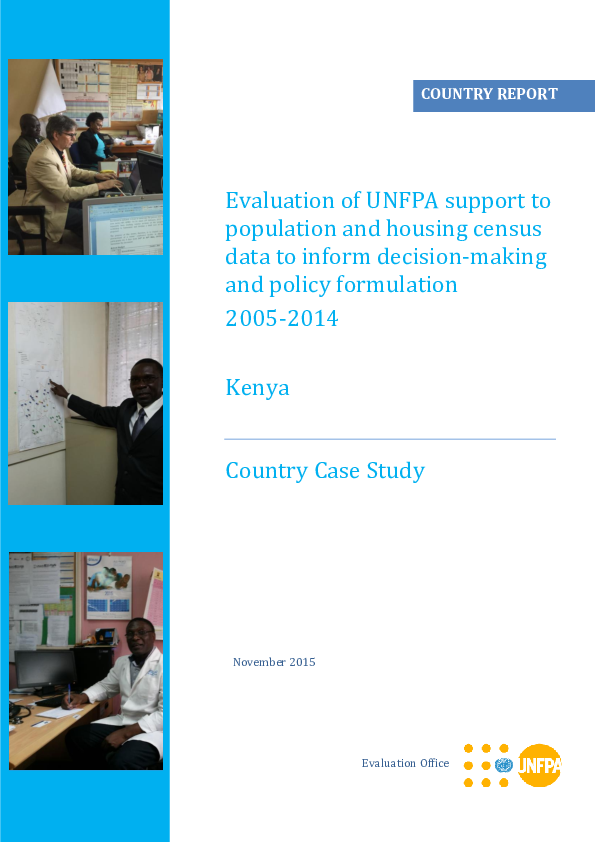
Evaluation of UNFPA support to population and housing census data to inform decision-making and policy formulation
Kenya Country Case Study Report
Resource date: 09 March 2016
UNFPA support to the 2009 Kenyan population and housing census is based on a country-led, demand-driven approach, with census implementation entirely driven and owned by the Kenya National Bureau of Statistics. UNFPA fostered an environment conducive to the census by mobilizing resources for the census, contributing to a detailed internal risk assessment, and providing a technical quality monitoring team. UNFPA also played a key role in developing an internationally recognized public advocacy campaign credited with forging national unity and achieving high enumeration coverage. UNFPA has expanded national capacity for addressing the gender dimensions of census data, which was sex-disaggregated. Though analytical monographs on gender were produced, they were never released.
The ability of UNFPA to broker close, cooperative relationships with Kenyan fundraising and advocacy partners was found to be its key comparative strength to the census process, and it seeks to keep up this momentum as it works toward its next census, scheduled for 2019. UNFPA Kenya faces distinct challenges managing the risk of politicization of the census process, the implications of the devolution process, and the non-release of information following controversies over data accuracy. In the absence of a focused strategy to address these contextual complexities, UNFPA support to data dissemination and sustained use, though appreciated by stakeholders, is found to be only moderately effective.
Related download
-
EN
Kenya Country Case Study Report